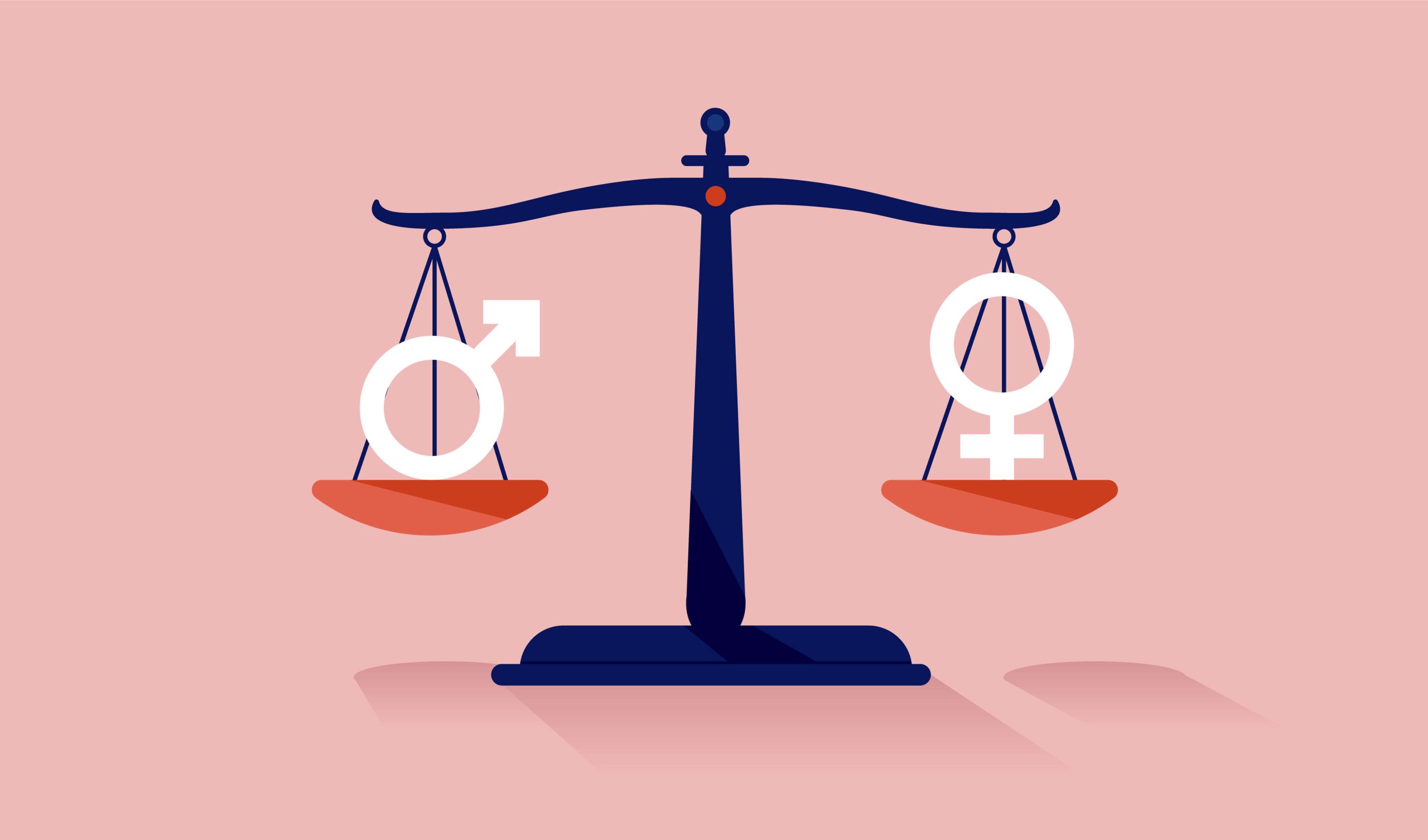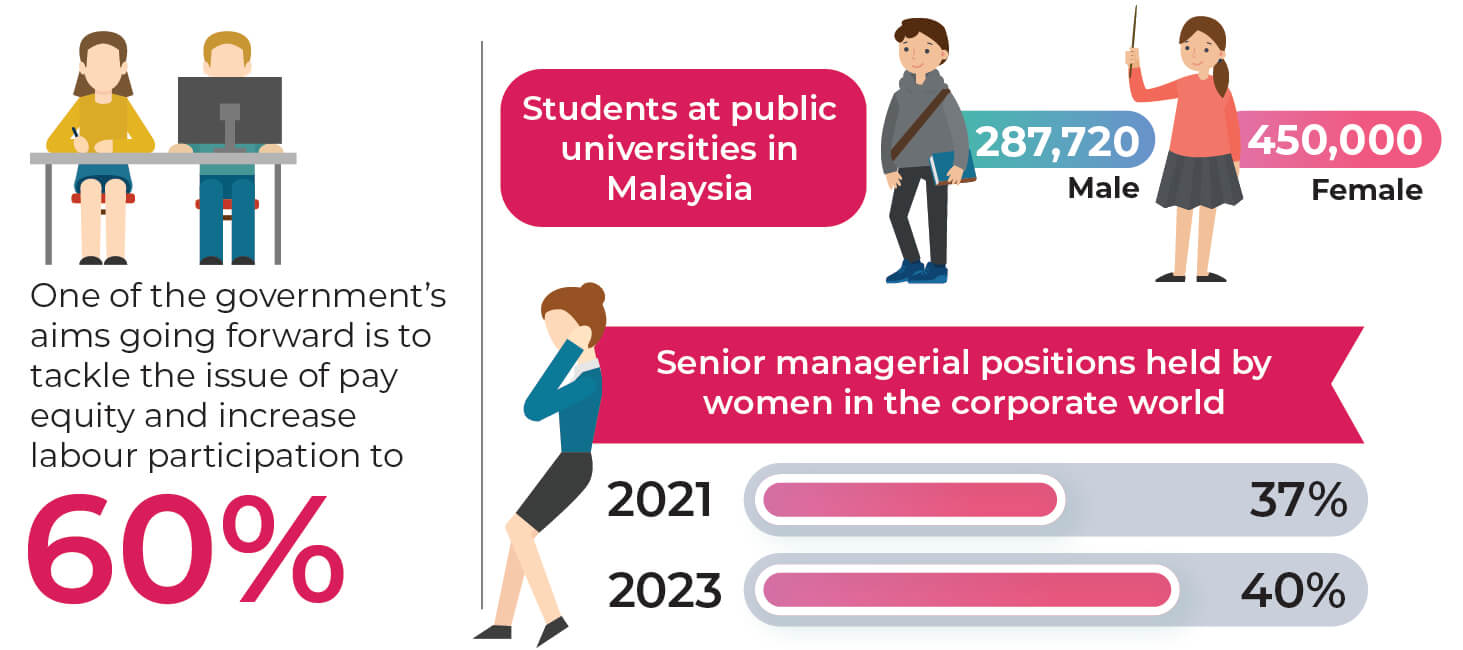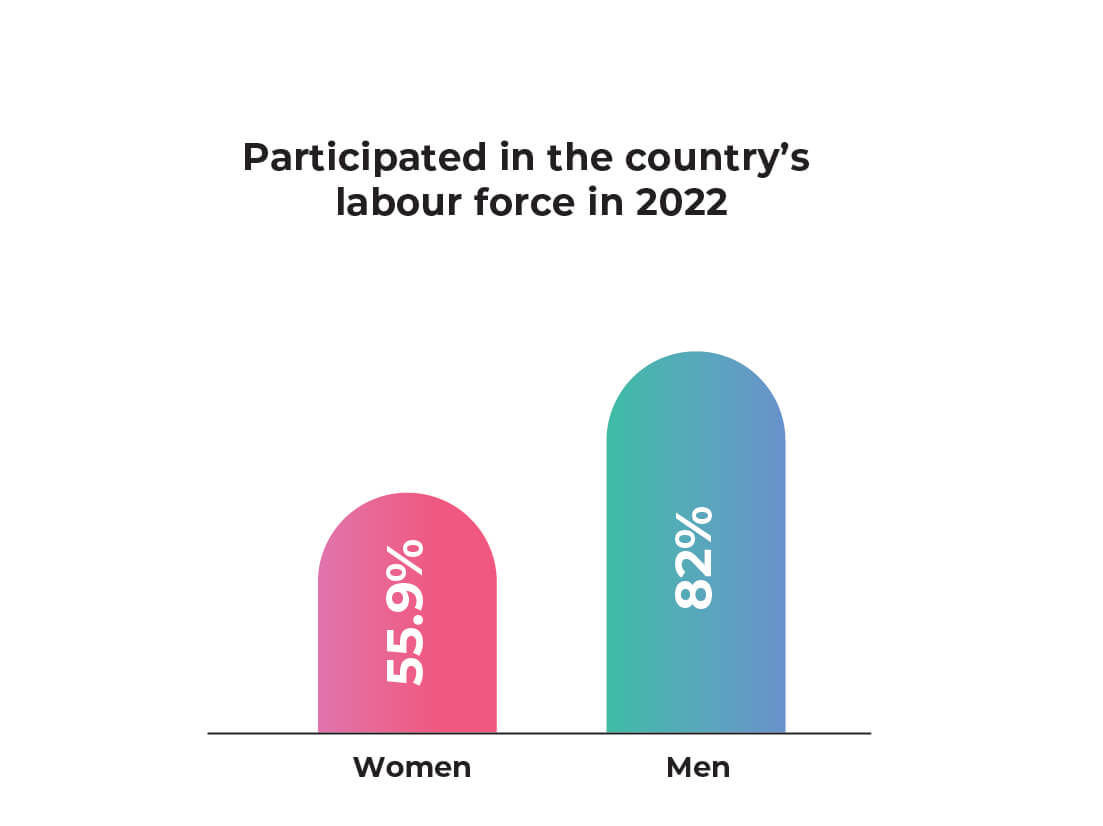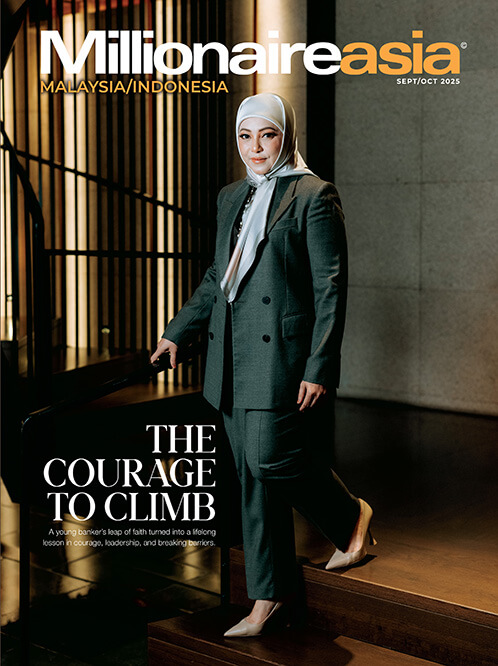In Malaysia, a vibrant wave of change has been sweeping across the nation as women rise to claim their place in every arena of life.
From the boardroom to parliament to grassroots movements, more and more Malaysian women are not just breaking barriers, they’re crafting a new narrative of strength, innovation, and resilience.
Although there’s still a ways to go, it’s reassuring to see the nation embracing policies and moves to build a future where every woman’s voice is heard, and where she can better fulfil her potential.

The landscape of women’s empowerment
Malaysia’s journey towards gender equality is marked by significant achievements and ongoing challenges.
Since the nation’s independence, women have made notable strides in various domains, including education, employment, and political participation.
It’s taken time, the understanding and commitment of the government and organisations, and the toil of women pioneers who faced doubt, discrimination and pushback as they fought for their rights and a fairer society.
In the early years following independence, the government’s primary focus was on economic development and nation-building. Women’s issues sat on the backburner as the country focused on its survival.
In the 50s to 70s, for instance, a woman’s place was largely at home.
While their access to education improved gradually with the increased female literacy rate, there was limited participation in the work force as employment opportunities for women were predominantly in agriculture and low-wage sectors.
The 1980s and 1990s saw a period of significant progress in women’s empowerment, characterised by policy developments and the increased visibility of women in schools and offices.
The establishment of the National Council of Women’s Organisations in 1985, and the National Policy on Women in 1989 were pivotal in addressing gender disparities and promote women’s participation in various sectors.
Malaysia also saw a rise in women with higher education, and women entering professions traditionally dominated by men, such as medicine and engineering.
The 1990s also witnessed more women taking on corporate and government roles but their representation in senior management and leadership positions were small.
Things took off from the 2000s, with further progress marked by efforts to break barriers and enhance women’s opportunities.
More women were participating in politics and handed leadership roles – and the country even saw a woman take on the role of deputy prime minister for the first time in 2004.
The Women’s Entreprenueurial Fund and other initiatives were introduced to provide financial resources for women business-owners. Legislations were passed to address gender-based violence and discrimination.
In recent years, Malaysia has continued to make strides in women’s empowerment while addressing persistent challenges.
The introduction of the Malaysia Gender Gap index and the focus of Sustainable Development Goals (SDGS) have driven efforts to improve gender equality in spheres of economy, education and health.
And there has been a concerted effort to support women’s advancement in corporate and public sectors, with the Women in Leadership program.
Despite progress, many challenges persist such as the gender pay gap, and underrepresentation in senior positions.
Cultural barriers, too, continue to impact women’s full participation.
Discussions continue to highlight the need for better enforcement of existing laws and greater support for women facing domestic violence.
And women soldier on, still working for a better future.

Unsung heroines
It’s been a long and rocky road, and tribute should be paid to the women who laid the groundwork for a future that promotes equality, diversity and inclusivity.
Ravi VS, CEO of consultancy Invictus Leader, wrote a post on LinkedIn cheering the “unsung heroines” who have left their mark on the fabric of Malaysian society.
These include PG Lim, one of the first female lawyers to practice in Malaysia – and Malaysia’s first female ambassador; Shamsiah Fakeh, leader of Angkatan Wanita Sedar, Malaysia’s first national women’s organisation; and Ganga Nayar, the first woman to lead a political party in Malaysia when she founded the Malaysian Workers’ Party.
“Their stories, marked by extraordinary courage, resilience, and leadership, serve as a testament to the pivotal roles women have played in shaping the nation,” he writes.
He suggests the authorities incorporate these women’s stories into Malaysia’s national curriculum – serving as a source of inspiration, a call to action, and a reminder of the ongoing journey towards a more inclusive, equitable, and just society.
Ravi writes: “This ensures that future generations are aware of the rich tapestry of Malaysian history, including the significant roles women have played. It challenges and dismantles gender stereotypes by presenting real-life models of women who have excelled in various domains, thereby inspiring young girls to aspire to greatness in their chosen fields. Moreover, it fosters a sense of pride and identity among all Malaysians, recognising the collective efforts of both men and women in the nation-building process.”

Women as leaders and decision-makers
Women now hold visible positions of power and decision-making roles in a range of sectors in Malaysia.
They’re trailblazers, movers and shakers, mentors, and innovators – and they’re working to try and pave the way for more women to rise up the ranks and fulfil their own potentials.
When Wan Azizah Wan Ismail was appointed Deputy Prime Minister in 2018, she made history as the first woman to ever hold the second-highest office in the Malaysian government.
Her term was cut short after 22 months due to political turmoil that resulted in the resignation of the former Prime Minister, Mahathir Mohamad.
Nevertheless, Wan Azizah showed that although Malaysia still has much to improve regarding its gender gap in the proportion of women vs men in political power – trailing behind its Southeast Asian neighbours like Singapore and Thailand – Malaysian women are indeed becoming more empowered, and more pathways are being created to provide access to leadership positions.
In 2022, women made up 17.9 per cent of Malaysian cabinet ministers, an increase of two percent compared to the previous year.
Although the number was still far behind the 30 per cent quota for women in high-ranking political seats, this indicated a significant improvement in women’s representation in decision-making positions in Malaysia.

Is a woman’s place at work or at home?
Malaysia was ranked No. 103 on the World Economic Forum Global Gender Gap index 2022. A poll by UCSI University’s Research Centre of 544 adults in Malaysia showed that a high proportion – 72 per cent – had either experienced or witnessed gender inequality at home, school or the workplace.
In 2022, there were more than 450,000 female students at public universities in Malaysia, a significantly higher number than the 287,720 of men.
Despite women’s achievements in higher education, they are underemployed in the workplace.
Only 55.9 per cent of women participated in the country’s labour force in 2022; while men’s participation reached more than 82 percent.

The gender pay gap also remains one of the biggest challenges for working women.
The 2023 Malaysia Gender Gap Index revealed that women with the same experience, qualifications and job titles earned only RM66 to a man’s RM100.
On average, men earned RM63,117 annually and women drew just RM42,080.
One of the government’s aims is to tackle the issue of pay equity and increase labour participation to 60 per cent.
That’s assuring news. And there already is reason to be optimistic about women’s fates at the workplace.
For one, there’s a steady rise in the number of Malaysian women clinching more senior positions in the corporate world.
As of 2023, 40 per cent of senior managerial positions were held by women, an increase of three percent compared to 2021.
As Noor Zira Azlin, law lecturer at UCSI University, puts it: “Gender equality in Malaysia has much to be improved – at home, the workplace and school.”
She notes that people “feel and witness gender inequality.”
“Women are one of the major human capitals contributing to the country’s development, and they deserve a fair social status,” she says.
Mindsets need changing
Although women’s empowerment has made some significant progress in Malaysia, there is still much to be done especially in changing the mindset of women’s main role as caregivers and men’s role as breadwinners.
Parts of society still need convincing.
A survey conducted by data gathering platform Statista in January 2024 shows that 43 per cent of respondents in Malaysia said they would prefer to have male political leaders.
Meanwhile, an Ipsos Malaysia report released earlier this year found that despite a global trend towards gender neutrality in leadership roles, many Malaysians still prefer men taking on these roles in general.
The study was conducted in 31 countries including Malaysia.
Among other things, it found that about 40 per cent of Malaysians would prefer male leaders or bosses, a higher ratio than the global average of about 20 per cent.

Looking forward
To achieve significant and sustained progress in women’s empowerment, change needs to happen not just at the top – but at the grassroots level.
Mindsets have to change, and Malaysians must learn to break free of the conceptions of the gender roles of old: woman at home, man at work; women as follower, man as leader.
The strides in advancing women’s empowerment and opportunities reflect both progress and ongoing challenges, underscoring the importance of continued commitment to gender equality.
So far, the progress achieved is a testament to the resilience and determination of Malaysian women and the broader societal commitment to creating an equitable environment.
With continued efforts and strategic initiatives, Malaysia will build on its achievements and strive towards a future where every woman has the opportunity to contribute to and benefit from the nation’s success.
In this issue, MillionaireAsia highlights five outstanding and accomplished Malaysian women who have blazed trails and broken barriers.
They’re just some of the strong voices who are working on the frontlines and behind the scenes in Malaysia to help unlock opportunities for and potential in the women around them.
As we witness increasing representation of women in various leadership roles and growing recognition of diverse voices, it also enriches communities, economic growth and innovation.
By championing equality, we pave the way for a more just and prosperous society where all people have the opportunity to contribute their talents and aspirations. The path ahead will be where empowerment and equality are not just aspirations but realities for all.






